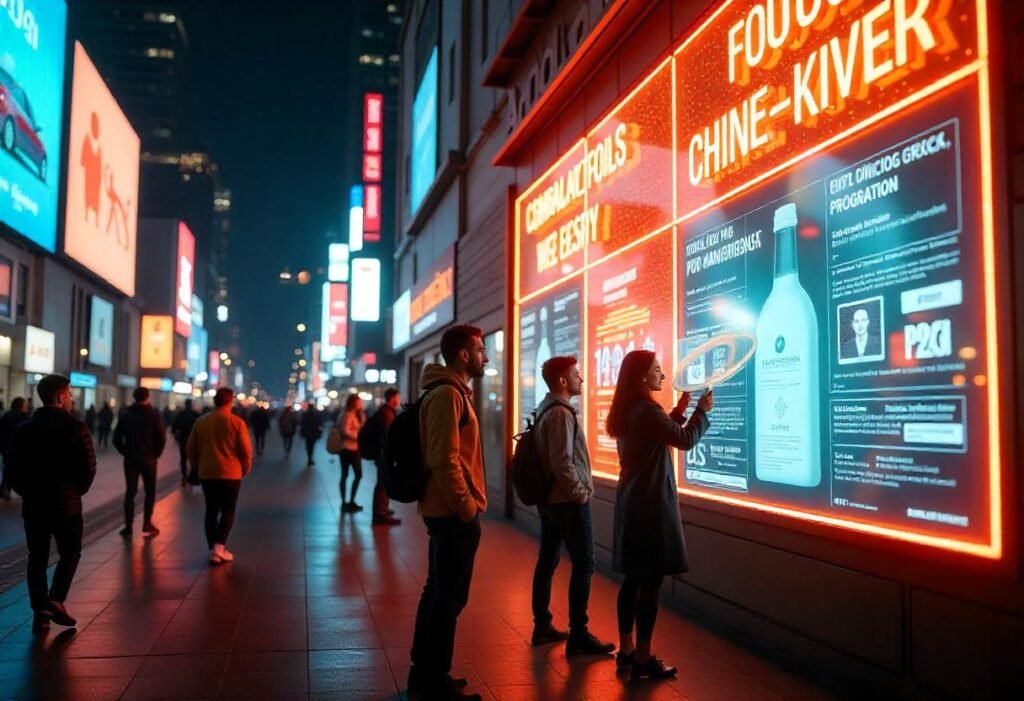In today’s highly competitive digital landscape, personalized advertising is no longer optional—it’s a necessity. Consumers expect ads that are tailored to their preferences, behaviors, and interests, making traditional broad-reach advertising less effective. Businesses investing in PPC management are now leveraging advanced personalization strategies to improve ad relevance, engagement, and conversions.
But how does personalized advertising work, and why is it essential for PPC campaigns? In this guide, we’ll explore how personalized advertising is shaping the future of PPC management, how businesses can implement it effectively, and why customized ad experiences drive better results.
What is Personalized Advertising?
Personalized advertising is the practice of delivering targeted ads based on user behavior, demographics, location, interests, and preferences. Unlike generic advertising, which targets a broad audience, personalized advertising ensures that each user sees ads relevant to their needs.
Why is Personalized Advertising Essential for PPC Management?
🚀 Higher Click-Through Rates (CTR): Ads that align with user intent receive more clicks than generic ones.
🚀 Better Conversion Rates: When users see tailored offers, they are more likely to take action.
🚀 Increased ROI: Optimized ad spend ensures you target high-value audiences while reducing wasted ad dollars.
🚀 Enhanced Customer Experience: Personalization reduces ad fatigue, making users more receptive to marketing messages.
With the right PPC management strategies, businesses can maximize ad performance while improving the overall user experience.
How Personalized Advertising is Changing PPC Management
1. Data-Driven Targeting for Smarter PPC Campaigns
Personalized advertising relies on data analytics to understand user behavior and create hyper-relevant ad experiences. PPC managers use:
✅ Demographic data: Age, gender, income, education level.
✅ Behavioral data: Past purchases, website visits, browsing habits.
✅ Geolocation targeting: Delivering ads based on user location.
✅ Psychographic insights: Interests, values, and lifestyles.
Example: A PPC management agency running ads for an online shoe store can show different ad creatives to users based on:
- Past purchase behavior (sports shoes vs. formal shoes)
- Search history (users looking for running shoes)
- Location (cold-weather vs. warm-weather shoe recommendations)
Using data-driven targeting, businesses can ensure that every ad speaks directly to the user’s needs, improving engagement and conversions.
2. AI-Powered Ad Personalization
Artificial Intelligence (AI) is revolutionizing PPC management, allowing businesses to create hyper-personalized ad campaigns with minimal effort.
🔹 Dynamic Creative Optimization (DCO): AI generates multiple ad variations and delivers the best-performing one to each user.
🔹 Predictive Analytics: AI predicts user behavior and adjusts bidding strategies accordingly.
🔹 Automated Bidding: AI adjusts PPC bids in real-time based on conversion potential.
Example: A business using AI-driven PPC management can automatically adjust ad copy, images, and CTAs based on user interactions—ensuring higher engagement with minimal manual effort.
3. Retargeting and Remarketing Strategies
Not all users convert on their first visit. Retargeting (remarketing) strategies allow businesses to re-engage users who have previously interacted with their brand.
🚀 Retargeting with Personalized Offers: Show users ads based on products they viewed but didn’t purchase.
🚀 Email-Based Retargeting: Deliver ads to users who signed up but didn’t complete a purchase.
🚀 Cart Abandonment Campaigns: Display exclusive discounts to users who left items in their cart.
Example: A PPC management expert can create a remarketing campaign for an eCommerce store, showing users:
- “You left this item in your cart—here’s 10% off to complete your purchase!”
- “Still thinking about these running shoes? They’re selling out fast!”
By strategically retargeting users, businesses can increase conversions while lowering customer acquisition costs.
Best Practices for Implementing Personalized PPC Advertising
1. Leverage First-Party Data for Better Personalization
Third-party cookies are fading, making first-party data (data collected directly from your audience) more valuable than ever.
✅ Collect email sign-ups, purchase history, and on-site interactions.
✅ Use CRM tools to segment audiences based on behavior.
✅ Integrate Google Analytics and PPC data for in-depth insights.
💡 Pro Tip: PPC managers should use first-party data to create custom audience segments and deliver more relevant ads.
2. Use Dynamic Ads to Tailor Messaging
Dynamic ads automatically adjust ad elements based on user preferences. This includes:
🔹 Dynamic Search Ads (DSA): Google automatically generates headlines based on a user’s search query.
🔹 Dynamic Product Ads: Facebook and Instagram show relevant products based on browsing history.
🔹 Personalized CTAs: Custom CTAs based on where users are in the buying journey.
Example: A PPC manager running Google Ads for a travel company can use dynamic ads to:
- Show flight deals to users searching for specific destinations.
- Display personalized hotel recommendations based on past searches.
3. Optimize Ad Copy & Creative for Each Audience Segment
A one-size-fits-all ad strategy no longer works. Personalized ad copy significantly improves CTR and conversion rates.
🔹 Use location-based targeting (e.g., “Best Coffee Shops Near You”).
🔹 Personalize headlines with user intent (e.g., “Looking for PPC Management? Get a Free Audit Today!”).
🔹 Use customer pain points to drive action (e.g., “Struggling with Low Ad ROI? Let’s Fix That!”).
💡 Pro Tip: A PPC management agency can A/B test different ad creatives to find the best-performing messaging.
4. Focus on Cross-Channel Personalization
Users interact with brands across multiple platforms, so your ads should be consistent and personalized across all channels.
🚀 Omnichannel PPC Strategy Includes:
- Google Ads: Search, Display, YouTube
- Facebook & Instagram Ads: Retargeting, carousel ads
- LinkedIn Ads: B2B lead generation
- TikTok & Twitter Ads: Engaging short-form content
💡 Pro Tip: PPC management teams should ensure that messaging remains consistent across all platforms for a seamless user experience.
The Future of Personalized PPC Advertising
With advancements in AI, machine learning, and automation, personalized advertising will continue to evolve. PPC management strategies will focus on:
🔹 Conversational AI & Chatbot Ads: Personalized chatbot interactions in ads.
🔹 Voice Search PPC Optimization: Ads tailored for voice-based searches.
🔹 Hyper-Personalized Video Ads: AI-generated custom video ads based on user behavior.
🔹 Privacy-Focused Targeting: Personalized advertising while complying with data privacy laws (GDPR, CCPA).
💡 Pro Tip: Businesses working with PPC management experts will gain a competitive advantage by staying ahead of emerging trends in personalized advertising.
Final Thoughts: Why PPC Management is Essential for Personalized Advertising
Personalized advertising is the future of PPC marketing. Businesses that invest in PPC management services can unlock higher engagement, better ad performance, and increased ROI by:
✅ Using AI & automation to personalize campaigns.
✅ Leveraging data-driven targeting for better audience segmentation.
✅ Creating dynamic ad experiences based on user behavior.
✅ Optimizing cross-channel PPC strategies for consistent branding.
Ready to take your PPC campaigns to the next level? Partner with a PPC management agency to implement personalized advertising strategies that drive real results!
Want to see higher conversion rates and better ROI on your PPC campaigns? Contact a PPC management expert today and start maximizing your ad performance!



